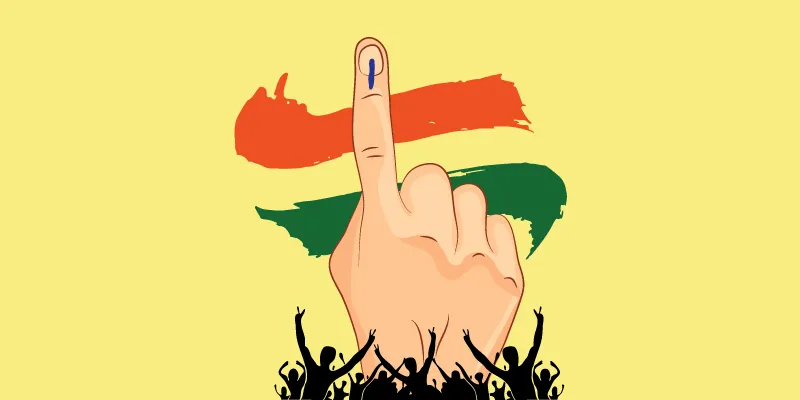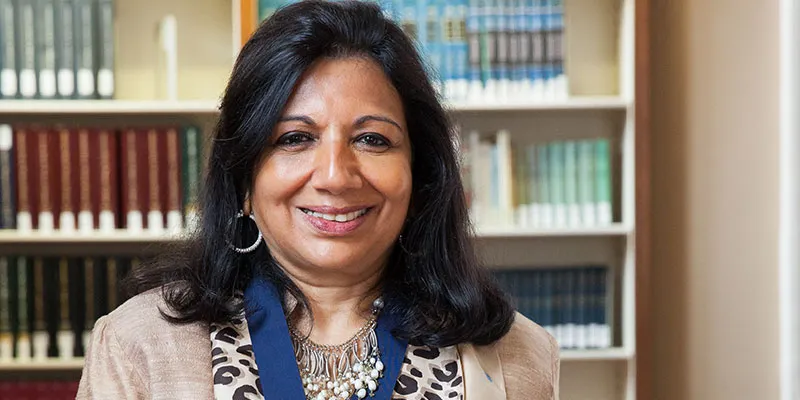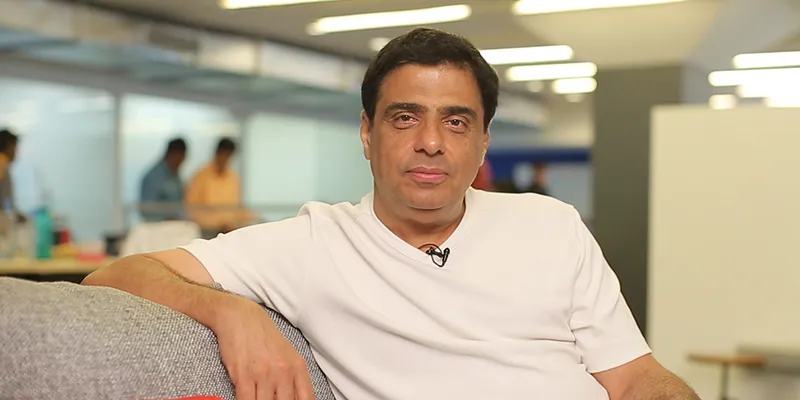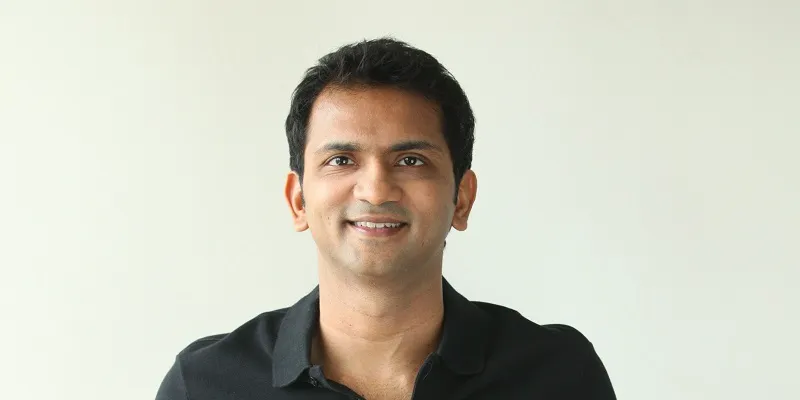General Elections 2019: Reactions from India Inc and the startup world to Modi 2.0
Prime Minister Narendra Modi and the BJP-led NDA party won a landslide victory in India's General Election results. Here's looking at how the country's startup leaders and entrepreneurs reacted to the verdict.

India Inc has high expectations from the new government
Prime Minister Narendra Modi's Bharatiya Janata Party (BJP)-led National Democratic Alliance (NDA) is on course for a historic win, as India wraps up the largest democratic election process in history on Thursday.
Over 600 million voted in the 2019 elections, roughly three times the population of Brazil, from a total of 900 million eligible voters.
[Also read: YourStory's complete coverage of the 2019 Indian General Elections]
Official data from the Election Commission showed Modi’s Hindu-nationalist Bharatiya Janata Party (BJP) ahead in around 300 of the 542 seats being contested, up from the 282 it won in 2014 and more than the 272 seats needed for a majority in the lower house of parliament.
Here's a look at the reactions from the startup and entrepreneur community and their expectations from the new government:
Anand Mahindra, Chairman, Mahindra Group:

Kiran Mazumdar-Shaw, Chairperson and Managing Director, Biocon:
"...NDA 2.0 must focus on implementation and execution of five-year strategy plan drawn up in NDA 1.0 which was more vision and rhetoric. Economic engine needs revving with bolder reforms and job creation measures. Agri-rural economy needs urgent attentions. FPOs must be focus."

Ronnie Screwvala, Co-founder and Chairman, upGrad:
“Under Prime Minister Modi’s leadership, the government has a proven track record on strong execution and reviewing its impact. Now it’s time to move towards taking bold steps to overhaul our systems at the grass root level, especially vis-à-vis education and training for innovation more than just skills, in order to ensure our position as one of the top three economies in the world. The country now needs to move away from a cost-based arbitrage global label we have to an innovation-led economy. As the next step, I also urge the government to fix the sharp divide amongst the rural and urban India, and rich and poor, with a focus on skilling and self sustenance. In the coming years, India needs to move towards a post-arbitrage model where the focus lies in home grown companies and a massive entrepreneurship wave v/s an outsourcing model that has been the bedrock of Indian economy so far. It’s time for Make In India 2.0 – with a focus on innovation and creativity!”

Ritesh Agarwal, Founder and CEO, Oyo:
"Led by a rise in women and young voters, over 67 percent of India's 90.99 crore electors cast their vote in these General Elections, which is the highest-ever voter turnout in any parliamentary poll since Independence. This is a phenomenal celebration of democracy. We congratulate the newly formed govt and hope this historic mandate keeps up the momentum on reforms in the economy, enables sectors like start-ups and tourism and hospitality that see maximum participation from young people and contributes to stability and progress."

Aditya Ghosh, CEO India and South Asia, Oyo:
"The Indian General Elections is the biggest testament to the power of democracy in the world. Irrespective of the political divide, we hope for a new beginning of inclusive growth, which helps the common man; renewed vigour in creating more opportunities for all; progressive thought and reforms that enable growth and entrepreneurship; and, drive maximum participation of young people."
Harshil Mathur, CEO and Co-Founder, Razorpay:
"This government has had a very strong focus on Digital India and FinTech, and we are happy that they will continue to do so. A lot of programs were initiated towards digitisation of the country and increasing access to fintech last year - this must progress with a fresh commitment to democratise digital payments. The impact of GST should bring more people into the tax bracket. One reform that I am expecting is the tax and GST benefit for businesses opting for digital transactions. We were looking forward for this to happen last year, however, hopefully, the government will do it this year."
Hardika Shah, Founder & CEO, Kinara Capital:
"The upside of the current administration winning the majority vote and coming back to office for five more years signals political stability, especially important for foreign investors to continue to confidently invest in India via debt or equity structures. It also signals a vote of confidence by the people on the many policy decisions made by the current government such as GST, skills development, and focus on the MSME sector. NBFCs are critical for the growth of the country and easing of stringent rules around co-investment by foreign entities by the new government will provide them with much-needed funding.”

Bhavin Turakhia, CEO, Zeta & Flock:
‘’In the last four years, Indian B2B startups have more than tripled. Our country is now taking giant strides towards becoming one of the fastest growing startup hubs globally. To make this a reality and accelerate their growth, the new Government of India must put in place measures such as training hubs for entrepreneurs across India to ease flow of capital, regulatory compliance and more."
Hari Ganapathy, Co-Founder, PickYourTrail:
"Over the last five years, the ease of doing business, GST, push on digital payments (UPI in specific) and overall checks and balances on compliance and taxation have seen major focus and improvement. The change in angel tax was by far one of the biggest relief. With the BJP poised to reach 300+ seats, we are excited for what’s in store over the next five years. Personally, it would be great if there are steps around simplification of labour laws, tax exemption on ESOPs, and increased investment on infrastructure and education."
Vineet Chaturvedi, Co-Founder, Edureka:
“We are confident that the current government will continue its progressive policies. By working closely with industry and training organisations, we will have the talent to build the next Amazons, Alibabas, and Facebooks of the world in India. We believe that the applications of the future will be Made in India and for India. The Indian economy is growing at a very fast pace and corporations of the world do not want to miss out on this opportunity. To provide them with a relevant workforce, we highly recommend Skilling Allowance for all tax paying individuals. Such a rebate that rewards continuous learning will go a long way to create a workforce that can make India a skill powerhouse.”

Also Read: What does the startup community expect from the next Prime Minister?
Rashi Gupta, Co-founder & Chief Data Scientist, Rezo.AI:
"A stable government at the centre will ensure the successful and speedy implementation of more than 150 schemes and policies that the BJP government introduced for the startups. We applaud the NITI Aayog’s plan to create an institutional framework for artificial intelligence (AI) in the country. We look forward to the next 5 years of the new government and are positive that it will continue its focus and support to the startup ecosystem; especially to give a push to adoption of AI in India."
Premanshu Singh, CEO, Coverfox.com:
“Expecting the government to work on 'ease of doing business' so as to drive the growth agenda. India is at an inflection point wherein the right set of policy boost can drive growth and employment. In Insurance particularly, there is a need to ease the regulations so as to bring the cost of compliance down.”
Jeurgen Hase, CEO, Unlimit:
“The Indian startup sector has already been ignited in the past five years with favourable policies around taxation, investments, ease of doing business, incubation, foreign capital, cross border, startup lobby groups, and industry associations. The foundation of the ecosystem is already in place with India being the third largest hub for startups globally. Active government involvement is the need of the hour to resolve challenges such as unemployment and funding for the growth of the industry and the economy at large. For startups to flourish, it is imperative to create an environment that is conducive to physical, offline small businesses, and hardware product firms operating locally. The new government should continue with initiatives such as Make in India and Digital India to aid the growth of the startup industry and also work towards a digital economy by installing proportionate methods to tackle policy challenges.”
Armand Poonawala, CEO and Founder of @:
"The positive effect is definitely stability that results in more money being pumped into Indian markets in general. On the downside, I’m not expecting any policies from this government that will actually make any significant positive difference on the ground level for startups."
Satyam Kumar, CEO & Co-Founder, LoanTap Financial Technologies:
‘’Currently, a startup needs to follow a number of compliance laid down by various regulatory bodies as well as there is a knowledge gap because of multiple points of contact. While they are definitely necessary, they are onerous and costly to comply with. Compliance is expected with regards to Labour Law, MSME Registration, Investment, MCA Compliance as well as ones related to individual sectors. There should also be consideration on hefty penalty in cases of non-compliance. Expectation from the government is to make processes simple to comply with - a single clearance window - which ensures end-to-end solution or procedure to be followed by a startup that enables pro-active compliance as well as helps to avoid unnecessary costs.’’
Also Read: Indian markets hit record highs, then reverse course as NDA makes a clean sweep
Deepak Gupta, CoFounder & CTO, LoginRadius:
"The new government should focus on data privacy and the security of Indian identities. As India will have 50 billion identities to manage in the next five years, including identities being also managed via IOT, AI, and other technological platforms, the government should provide emphasis and regulate data privacy with the usage of advanced platforms that provide user consent management, best in class user experience, and data security."
Navtej Singh, CEO of Digital Business, Hitachi Payment Services:
“It is our belief that the (new) government will take steps to further strengthen the fintech ecosystem in India. With the consumer in mind, the government should introduce regulations that are flexible in nature and benefit multiple stakeholders. While regulations like sandbox and ‘no-compromise’ approach towards safety will further drive innovation and security in the fintech space, a more market driven approach towards pricing, the timelines to implement the norms and flexibility would be equally important. The push towards more convenience, cost effectiveness, and adoption of technology that make lives easier for every Indian citizen such as UPI, IMPS etc. should be the topmost priority.”
Himanshu Pujara, Managing Director, Euronet Services India:
“A right mix of policies, regulations, and incentives are required to further the fintech space. The government thus far has been extremely supportive by promoting the platform for real time and faster payments, creating an environment that has let to huge investments in the fintech space which has allowed mushrooming of several hundreds of startups that are enabling innovation. Going forward, the government has to ensure that policy and regulation have a coordinated run with industry requirements and innovation to foster creativity, new investments, and secure growth of the sector.”
Saru Tumuluri, CEO, Veri5Digital:
"A big boost is anticipated for the financial inclusion and fintech sector in the second term of the NDA government. Fintech will continue to be a sunrise sector and with more supportive government regulations will exhibit tremendous growth and innovation especially in the sachet size financial products.”
Sabyasachi Mitter, Founder and MD of advertising and marketing company, Fulcro:
”These elections have seen probably one of the most well organised marketing campaign from the BJP that every marketer could take inspiration from. From star campaigner Modi’s blitzkrieg of mass outreach to a meticulous micro campaign planning by Amit Shah that ensured the correct candidate selection and booth worker engagement, the campaign was an example that every management professional could learn from. All in all, this was one campaign that could well be a case study that every management text book could do well to incorporate.”
Kiran Kalakuntla, Founder & CEO, ekincare:
"After Aadhar and connecting banking facilities to it, health is the next big frontier! A centralised health data repository will help bring focus on preventive health from the grassroot level. On the corporate front, regulations for the insurance industry to push more wellness activities would greatly bolster the efforts towards a healthy India."
Lav Kumar, Head, Product & Business Development at LIC Mutual Fund:
“We believe the Indian economy in 2019 will keep growing faster than 2018 due to the demographic young population and their demand for better lifestyle, goods, and services. The clear policy direction and ease of doing business will not only bring foreign direct investments but also create the environment of entrepreneurship. Having said that, the economy is facing headwinds in terms of growing oil prices, global trade wars which too need to be tackled deftly.”
Ajay Singh, Chairman and Managing Director, SpiceJet:
“India must grow at 10 percent for the next 10 years and this government will ensure that we shed the tag of a ‘developing’ country and proudly take our place in the big league of economic superpowers. India’s aviation sector has witnessed remarkable growth in the last five years and I am confident that we will continue to be the fastest growing aviation market in the world. We hope that our government will address the structural challenges facing the sector urgently. If this is done, there is no doubt that Indian carriers will become leading global players and, India, a global aviation hub that surpasses Dubai, Abu Dhabi, and Singapore.”
RC Bhargava, Chairman, Maruti Suzuki India Limited:
“The 2014 mandate to Mr Modi was to restructure governance and economic development systems and create employment by accelerating growth especially manufacturing. Mr Modi initiated many reforms but the work could not be completed as it involved making mindset and behaviour changes and legal enactments and other steps faced political difficulties. The voter has now exhibited full confidence in what Mr Modi was doing and has given him an overwhelming mandate to proceed further. The understanding and maturity of the voter is truly outstanding.”
(Written by: Anya George and Tenzin Pema with inputs from: Shradha Sharma, Sindhu Kashyaap, Sujata Sangwan, Dipti Nair, Tarush Bhalla, Thimmaya Poojary, Ramarko Sengupta, Sohini Mitter, Rashi Varshney, Athira Nair, Suma Ramachandran, Megha Reddy, Rekha Balakrishnan, and Tanvi Dubey.)







